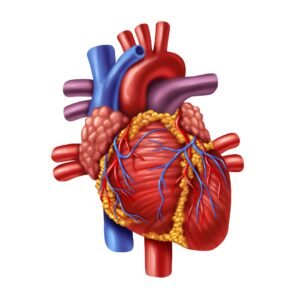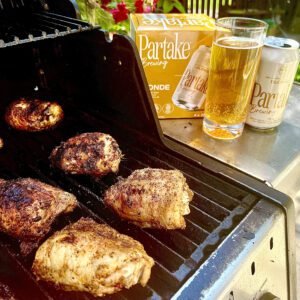
Sober October has become a powerful reminder of the transformative journey I embarked on four years ago when I gave up alcohol. Next month serves as a short yet impactful way to encourage you to take that challenging step toward removing alcohol from your life, or at the very least, cut back. With the abundance of delicious non alcoholic beverages available today—many of which are low in sugar—I know firsthand that you don’t have to sacrifice your lifestyle or feel out of place at dinners or restaurants.
This month-long break from drinking offers you numerous benefits, from improved health to enhanced mental clarity. It’s a popular challenge worldwide for people who are looking to reassess their relationship with alcohol. You’ll find that diving into what Sober October is all about, understanding its history, and learning how to make the most of this transformative experience can be incredibly valuable.
In my experience, it’s definitely worth the try. Whether you’re aiming for long-term sobriety or just want to hit the reset button, Sober October provides a structured, supportive framework to explore life without alcohol. It’s amazing how much can change in just one month, and you might discover that the insights gained during this time can lead to lasting positive changes in your relationship with alcohol and your overall well-being.
Remember, this challenge is about your personal growth and health. You may be surprised by the clarity and energy you gain, the improvements in your sleep quality, or the money you save. It’s an opportunity to reevaluate your habits, discover new coping mechanisms, and potentially make lasting changes that benefit your life long after October ends.
What Is Sober October?

Sober October is a month-long challenge where participants abstain from alcohol for the entire month of October. It’s an opportunity to reset your drinking habits, improve your health, and gain a new perspective on your relationship with alcohol.
Here are some points about it:
Origins of Sober October:
The concept of Sober October originated as a fundraising campaign for Macmillan Cancer Support in the UK. It was inspired by the success of Dry January and aimed to provide people with another opportunity to reassess their drinking habits while supporting a worthy cause.
Global Reach:
Sober October is also observed in the United States and Canada. The initiative has gained traction beyond its origins in the UK, where it started as a fundraising campaign for Macmillan Cancer Support. In the U.S., Sober October has evolved into a challenge encouraging individuals to abstain from alcohol for the entire month while also raising funds for mental health support organizations like SMART Recovery.
In Canada, similar campaigns have been embraced, promoting the idea of taking a break from alcohol to reassess drinking habits and improve overall health. Participants in both countries often report benefits such as better sleep, improved mental clarity, and enhanced emotional well-being during this alcohol-free month.
The growing popularity of Sober October reflects a broader movement towards mindful drinking and self-care, making it accessible to anyone looking to explore their relationship with alcohol, regardless of their drinking habits.
What Are The Benefits Of Sober October?

Taking part in Sober October can lead to numerous positive changes in your life.
Here are some of the key benefits you might experience:
The Impact of Alcohol on Sleep Quality:
Alcohol’s influence on sleep patterns is often underestimated, yet its effects can be profound. By abstaining from alcohol, many people discover significant improvements in both the quality and duration of their rest. This isn’t just a scientific observation; it’s a reality I’ve personally experienced.For years, I attributed my sleep issues to genetics, believing I had inherited my father’s tendency towards insomnia and other health problems. It wasn’t until I achieved sobriety that I had a revelation: my father’s sleep disturbances were likely a direct result of his alcoholism, not an inherent genetic trait.
Breaking Through Denial:
This realization highlighted how denial can cloud our judgment and prevent us from seeing the obvious. By removing alcohol from my life, I was able to:
- Sleep more deeply
- Wake up feeling genuinely refreshed
- Recognize the true source of my sleep issues
It’s remarkable how giving up alcohol can unveil truths about our health that we’ve long overlooked or misattributed. My journey to better sleep serves as a testament to the powerful link between alcohol consumption and sleep quality, and the transformative effects of sobriety.
The Clarity That Comes with Sobriety:
Many participants in sobriety programs report enhanced focus, improved decision-making skills, and increased productivity—and I can wholeheartedly relate. For years, I struggled with mental fog, which I attributed to my disrupted sleep patterns and bouts of insomnia. Interestingly, my journey to sobriety coincided with a newfound alertness in the mornings and a remarkable ability to concentrate. Unlike before, when my focus would wane by the afternoon—prompting me to rely on heavy caffeine to push through—I now enjoy sustained mental clarity throughout the day.This shift has transformed my work habits; I no longer need to combat that afternoon slump. Instead, I can maintain full concentration from morning until I choose to stop working, allowing me to be more productive and engaged in everything I do. I also have one coffee in the morning and that’s it.
Better Physical Health:
A month without alcohol can lead to improvements in various aspects of your physical health, including:
The Hidden Impact of Alcohol on Weight Management
Alcohol’s influence on our weight and body composition is often underestimated. As I discovered through personal experience, its effects can be profound and multifaceted.
Caloric Density and Weight Gain:
Alcohol is surprisingly calorie-dense, contributing significantly to daily caloric intake. By eliminating it for just a month, many people notice changes in their weight and body composition. This was certainly true for me.
The Struggle with Food Intake:
When I was drinking regularly, I found myself in a constant battle to maintain my weight. I had to severely restrict my food intake to compensate for the calories from alcohol. It’s astonishing how denial can cloud our judgment and prevent us from seeing the full picture.
The Metabolic Impact of Alcohol:
Looking back, I realize I overlooked several crucial factors:
- Slowed Metabolism: Alcohol can slow down our metabolic rate, making it harder to burn calories efficiently.
- Empty Calories: Alcoholic drinks add calories without providing essential nutrients, effectively adding “empty” calories to our diets.
- Increased Appetite: Alcohol stimulates appetite, often leading to overeating or poor food choices.
- Prioritized Burning: The body prioritizes burning alcohol for energy over other sources, potentially leading to increased fat storage from food.
Breaking Through Denial:
It’s amazing how denial can prevent us from acknowledging these realities. By cutting out alcohol, I was able to see clearly how it had been affecting my weight and overall health. This shift in perspective was a game-changer for my weight management journey.
The Hidden Costs of Alcohol: A Personal Perspective
As a veteran of the alcohol industry with over three decades of experience as a wine and food journalist, author, and speaker, I’ve gained unique insights into the financial impact of drinking. My career afforded me numerous perks, including complimentary wine samples and opportunities to host lavish, multi-course dinners paired with carefully curated wines. Yet, despite these industry benefits, my annual wine expenditures were staggering, ranging from $8,000 to $12,000.
The Price of Indulgence:
It’s easy to underestimate how quickly costs can escalate when serving premium wines priced between $50 and $100 per bottle, especially when entertaining guests with elaborate meals. This extravagance, while part of my professional life, came with a hefty price tag.
Financial Freedom Through Sobriety:
Four years ago, I made the life-changing decision to embrace sobriety. This choice not only improved my health but also dramatically impacted my finances. The money previously allocated to wine has been redirected towards more meaningful and fulfilling pursuits.Many Sober October participants experience a similar financial revelation. As they progress through the month, they’re often pleasantly surprised by the amount they save, underscoring one of the significant benefits of reducing or eliminating alcohol consumption.This personal journey from industry insider to sober advocate has highlighted the substantial financial advantages of an alcohol-free lifestyle, proving that the benefits of sobriety extend far beyond health improvements.
How Can You Successfully Complete The Sober October Challenge?

Strategies for a Successful Sober October:
Embarking on Sober October requires thoughtful planning, dedication, and a strong support system. Here are some effective strategies to help you thrive during this month-long challenge:
1. Set Clear Goals:
Identify your objectives for Sober October. Whether your aim is to enhance your health, save money, or gain insight into your relationship with alcohol, having specific goals will keep you motivated and focused.
2. Find Alternative Activities:
Discover enjoyable activities to replace drinking. Consider exploring new hobbies, increasing your exercise routine, or spending quality time with friends and family in alcohol-free environments. Engaging in fulfilling alternatives can help you stay on track.
3. Seek Support:
Share your commitment to Sober October with friends and family. Look for an accountability partner to share your journey or join online communities where you can connect with others participating in the challenge. Having a support network can make a significant difference.
4. Explore Non-Alcoholic Alternatives:
Take advantage of the wide variety of delicious non-alcoholic beverages available. These options can help satisfy the ritual of having a drink without the effects of alcohol. Just be mindful of the sugar content in these alternatives to maintain a balanced approach.By implementing these strategies, you’ll be well-equipped to navigate Sober October successfully and enjoy the benefits of an alcohol-free month!
What Are The Long-Term Health Benefits Of Sobriety?

Long-Term Health Benefits of Extended Sobriety:
While Sober October is a month-long challenge, it can serve as a catalyst for prolonged sobriety, offering substantial and diverse health benefits:
Improved Cardiovascular Health:
Extended sobriety significantly enhances cardiovascular function. Research shows that abstaining from alcohol for an extended period can lead to:
- Reduced blood pressure: Studies indicate a decrease in both systolic and diastolic blood pressure within weeks of abstinence.
- Lower risk of heart disease: Long-term sobriety is associated with a 14-35% reduction in cardiovascular disease risk.
- Improved heart function: Abstinence can reverse alcoholic cardiomyopathy, a condition where the heart muscle weakens due to long-term heavy drinking.
Enhanced Liver Function:
The liver demonstrates remarkable regenerative capabilities. Prolonged alcohol abstinence allows for significant healing:
- Reduced fat accumulation: Within 4-8 weeks of sobriety, fatty liver disease can begin to reverse.
- Improved enzyme levels: Liver enzymes like ALT and AST typically normalize within 2-6 weeks of abstinence.
- Decreased inflammation: Chronic inflammation markers in the liver decrease substantially with prolonged sobriety.
Breaking the Cycle: Alcohol, Depression, and Genetic Misconceptions:
The link between alcohol abstinence and improved mental health is well-documented, with studies showing a significant decrease in anxiety and depressive symptoms after 3-6 months of sobriety. My personal journey with this phenomenon was both enlightening and transformative.
Unraveling the Genetic Myth:
For years, I believed my depression was an inescapable genetic inheritance. My father, whom I deeply loved and still cherish in memory, also battled depression. This led me to the seemingly logical conclusion that my mental health struggles were simply “bad genes” at work. However, this assumption overlooked a crucial factor: my father’s alcoholism.
The Alcohol-Depression Connection:
As I began to pay closer attention to my own patterns, I noticed a direct correlation between alcohol consumption and depressive episodes:
- Even a single glass of wine at dinner could trigger depression the following day, lasting for a couple of days.
- Nights of excessive drinking could lead to month-long bouts of depression.
The Sobriety Revelation:
Upon giving up alcohol, I experienced a profound shift in my mental health. The persistent, unexplained depression that had plagued me for years virtually disappeared. This doesn’t mean I never feel depressed; rather, my experiences of depression became situational and appropriate to circumstances.
Grief and Circumstantial Depression:
I still encountered deep sadness and depression, particularly when facing the loss of my father, mother, and younger brother to heart disease. However, these feelings were contextual and a natural response to grief, rather than the chronic, seemingly baseless depression I had experienced while drinking.
Breaking the Family Pattern:
Reflecting on my family history, I now recognize that substance addiction likely played a significant role in the mental health challenges faced by my loved ones. This realization underscores the importance of addressing addiction in breaking the cycle of depression that can appear to run in families.My experience serves as a powerful testament to the impact of sobriety on mental health. It highlights how easily we can misattribute our struggles to genetics when environmental factors, particularly substance use, may be the true culprits. By choosing sobriety, I not only improved my mental health but also gained clarity on the complex interplay between alcohol, depression, and family history.
Neurological Renaissance: The Brain’s Remarkable Recovery in Sobriety:
Long-term abstinence from alcohol initiates a profound neurological transformation, particularly in the brain’s cognitive powerhouse – the hippocampus. This transformation is characterized by two key processes:
1. Neurogenesis: The Birth of New Brain Cells
Research has shown that extended sobriety promotes neurogenesis, the growth of new neurons. This process is especially pronounced in the hippocampus, a region crucial for:
- Learning and memory formation
- Spatial navigation
- Emotional regulation
The generation of new neurons in this area can lead to improved cognitive plasticity, enhancing the brain’s ability to adapt and form new neural connections.
2. Rapid Cognitive Enhancement:
Alongside neurogenesis, abstinence from alcohol triggers a cascade of cognitive improvements:
- Memory: Both short-term and long-term memory show significant enhancement.
- Attention: The ability to focus and sustain concentration improves markedly.
- Executive Function: Higher-order cognitive processes such as planning, decision-making, and impulse control demonstrate notable advancement.
3. The Cognitive Renaissance of Sobriety: A Personal and Scientific Perspective
The journey to sobriety unveils a remarkable neurological transformation that begins within weeks and continues to unfold over months. This process creates a virtuous cycle: as new neurons form and integrate into existing neural networks, cognitive functions improve, which in turn supports further neuroplasticity. This neurological renaissance highlights the brain’s extraordinary capacity for healing and adaptation when freed from alcohol’s influence, presenting a compelling case for the cognitive benefits of long-term sobriety.My personal experience vividly illustrates these scientific findings. Participating in Sober October can be a powerful first step towards experiencing these benefits.
The 31-day challenge serves as a tangible demonstration of one’s capacity for sobriety, potentially paving the way for a more permanent lifestyle change. The improvements observed in just one month often pale in comparison to the profound benefits of complete abstinence. One of the most striking changes I’ve experienced is the flood of childhood memories that I once thought were lost forever.
I used to believe my inability to recall my past was simply how my brain was wired. However, sobriety has unlocked a treasure trove of vivid recollections, often surfacing spontaneously during unrelated activities. This experience has shown me that these memories were always there; alcohol had merely suppressed my ability to access them. It’s a powerful reminder of the mind’s resilience and the brain’s incredible capacity for recovery when given the chance to heal.
4. Reduced Cancer Risk:
Alcohol is a known carcinogen, and extended sobriety can significantly lower cancer risk:
- Decreased risk of multiple cancers: Long-term abstinence reduces the risk of cancers of the mouth, throat, esophagus, liver, colon, and breast.
- Cellular repair: Sobriety allows for DNA repair mechanisms to function more effectively, reducing the accumulation of cancer-causing mutations.
- Improved immune function: Extended abstinence enhances the immune system’s ability to identify and eliminate potentially cancerous cells.
These scientific findings underscore the profound impact of long-term sobriety on overall health and well-being, demonstrating that the benefits extend far beyond the initial month of abstinence.
Why Should You Be Cautious About Sugar In Non-Alcoholic Beverages?

While non-alcoholic alternatives can be helpful during Sober October, it’s important to be mindful of their sugar content. Excessive sugar consumption can lead to health issues similar to those caused by alcohol. Here are some key points to consider:
Sugar Content in Non-Alcoholic Alternatives:
- Non-alcoholic wines: On average, contain between 1 to 10 grams of sugar per 100 milliliters.
- Non-alcoholic beers: Can contain up to 15g of sugar per 100ml, compared to regular beer which typically has little to no sugar.
- Soft drinks: Often contain around 10.6g of sugar per 100ml.
Health Impacts of Excessive Sugar Consumption:
-
Weight Gain:
- Like alcohol, sugar is high in calories (4 calories per gram).
- Consuming an extra 100 calories per day from sugar can lead to a 10-pound weight gain over a year.
-
Increased Diabetes Risk:
- High sugar intake can lead to insulin resistance.
- Studies show that people who consume sugary drinks regularly (1-2 cans a day or more) have a 26% greater risk of developing type 2 diabetes.
-
Liver Damage:
- While not as severe as alcohol-induced damage, excessive sugar consumption can lead to non-alcoholic fatty liver disease (NAFLD).
- Up to 35% of adults in Western countries have NAFLD, partly due to high sugar diets.
-
Cardiovascular Health:
- High sugar intake is associated with increased risk of heart disease.
- A study found that people who got 17-21% of their calories from added sugar had a 38% higher risk of dying from cardiovascular disease compared to those who consumed 8% of their calories from added sugar.
-
Dental Health:
- Sugar is a primary cause of tooth decay.
- The World Health Organization recommends limiting sugar intake to less than 10% of total energy intake to reduce the risk of dental caries.
While non-alcoholic alternatives can be a useful tool during Sober October, it’s crucial to be aware of their sugar content and consume them in moderation. Opting for lower-sugar alternatives or unsweetened beverages can help mitigate these potential health risks while still supporting your sobriety goals.
What Are Some Low-Sugar Non Alcoholic Spirits?

If you’re looking for non-alcoholic alternatives during Sober October, consider low-sugar options.
Here are a few:
Seedlip – A range of distilled non-alcoholic spirits that are both calorie free and sugar-free
- Ritual Zero Proof – Offers spirit alternatives
- Tequila: 1g carb & 1g sugar per 1.5 ounces
- Rum Alternative: 2g carbs & 2 grams sugar per 1.5 ounces
- Whiskey Alternative: 2g carbs & 1g sugar per 1.5 ounces
- Gin Alternative: 1g carb & 1g sugar per 1.5 ounces
- Ritual Aperitif Alternative: 2g carbs & 1g sugar per 1.5 ounces
Undone Mexican Smoky Agave: 0.3g carbs & 0.3 g sugar per 1 ounce
Monday Non-alcoholic gin: 0g carbs & 0g sugar & 0 calories
Kentucky 74 Distilled Non Alcoholic Whiskey: 4g carbs & 1 g sugar per 2 ounces
What Are Some Low-Sugar Non Alcoholic Wines To Try?

Here are some non alcoholic wines low in sugar worth trying:
Sparkling Wines:
- ONES Sparkling White: 9.6 calories and 0g sugar per 100mL (Click this link for a 10% discount on ALL Ones Sparkling Wines)
- ONES Sparkling Rosé: 7.2 calories and 0g sugar per 100mL (Click this link for a 10% discount on ALL Ones Sparkling Wines)
- ONES Sparkling Red: 7.2 calories and 0g sugar per 100mL (Click this link for a 10% discount on ALL Ones Sparkling Wines)
- Sovi Sparkling Wine: 10 calories and 1.3g sugar per 100mL
- Joyus Sparkling White: 12.5 calories and 2.5g sugar per 100mL
- Joyus Sparkling Rose: 12.5 calories and 2.5g sugar per 100mL
- Noughty Sparkling Chardonnay: 14 calories and 2.9g sugar per 100mL
- Thomson & Scott Noughty Sparkling Chardonnay: 14.4 calories and 3.2g sugar per 100mL
- Château del ISH (Sparkling Rosé): 20 calories and 3.9g sugar per 100mL
- Edanvale Sparkling Cuvee Spanish: 24 calories and 3.8g sugar per 100mL
- Edenvale Sparkling Rose: 36 calories and 3.8g sugar per 100mL
- Oddbird Non-Alcoholic Sparkling Rosé: 19.4 calories and 4.4g sugar per 100mL
- Edenvale Non Alcoholic Rose: 21 calories and 4.6g sugar per 100mL
- Edenvale Sparkling Shiraz: 21 calories and 4.7g sugar per 100mL
- Edanvale Sparkling Cuvee: 23 calories and 5.1g sugar per 100mL
White Wines:
- The Expedition Series Non-Alc Verdejo Sauvignon Blanc: 24 calories and 0g sugar per 100mL
- Sovi Chenin Blanc: 10 calories and 1.3g sugar per 100mL
- Edenvale Semillon Sauvignon Blanc: 8 calories and 1.6g sugar per 100mL
- Giesen Sauvignon Blanc: 12.5 calories and 1.75g sugar per 100mL
- Brochet Zero Organic Sauvignon Blanc: 8 calories and 1.8g sugar per 100mL
- Noughty Blanc De-alcoholised White Wine: 17 calories and 2.0g sugar per 100mL
- Princess Alternativa Bianco Dry Non-Alcoholic White Wine: 17 calories and 2.6g sugar per 100mL
- Edanvale Pinot Gris: 13 calories and 2.8g sugar per 100mL
- Lautus Chardonnay: 20 calories and 2.8g sugar per 100mL
- Edenvale The Spanish Expedition Series Verdejo Sauvignon Blanc: 17 calories and 3.6g sugar per 100mL
- Edenvale Non-Alc Chardonnay: 18 calories and 3.9g sugar per 100mL
- Leitz Eins Zwei Non-Alc Riesling: 24 calories and 4.9g sugar per 100mL
- Edenvale Blanc de Blanc Premium Reserve: 23 calories and 5.2g sugar per 100mL
- Luminara Napa Valley Chardonnay Dealcoholized: 18 calories and 5.2g sugar per 100mL
- Le Petit Beret Virgin Sauvignon Blanc: 25 calories and 6.2g sugar per 100mL
Rosé Wines:
- Sovi Sparkling Rose: 10 calories and 1.3g sugar per 100mL
- Joyus Rose: 10 calories and 2g sugar per 100mL
- Noughty Non-Alcoholic Sparkling Rosé: 18 calories and 4g sugar per 100mL
- Wölffer Spring in a Bottle Non-Alcoholic Rosé: 24.5 calories and 4.8g sugar per 100mL
- Edenvale Rose: 22 calories and 5.5g sugar per 100mL
Red Wines:
- YOURS Non-Alcoholic California Red Blend: 6.8 calories and 0.68g sugar per 100mL
- Sovi Reserve Red: 10 calories and 1.3g sugar per 100mL
- Joyus Cabernet Sauvignon: 16.7 calories and 1.3g sugar per 100mL
- Alcohol Removed Cabernet Sauvignon: 13.3 calories and 1.3g sugar per 100mL
- Edenvale Non-Alcoholic Grenach Shiraz Mataro: 10 calories and 1.8g sugar per 100mL
- Naughty Red: 14 calories and 2.5g sugar per 100mL
- Lautus Non-Alcoholic Red: 12 calories and 3g sugar per 100mL
- Edenvale Non-Alcoholic Tempranillo Cabernet Sauvignon: 14 calories and 3g sugar per 100mL
- Luminara Red Blend: 20 calories and 3.2g sugar per 100mL
- Edenvale Shiraz: 17 calories and 3.8g sugar per 100mL
- Edenvale Cabernet Sauvignon: 18 calories and 3.9g sugar per 100mL
- Edenvale Premium Reserve Pinot Noir: 20 calories and 4.3g sugar per 100mL
- Leitz Eins-Zwei-Zero Pinot Noir: 21 calories and 4.9g sugar per 100mL
What Are Some Low-Sugar Non Alcoholic Beers To Try?

Partake is the lowest in sugar and carbs. Here are a few:
IPA:
- 10 calories/2g carbs per can
- To the brew that started it all – the leader of the pack. Our signature IPA is crafted for those who seek the bold hop character of a traditional IPA without the alcohol. This brew features a harmonious blend of citrus, pine, and floral notes, delivering a crisp and refreshing finish.
Pale Ale:
- 10 calories/4g carbs per can
- Partake Pale is a delicious blend of fruity and floral hops that infuse the brew with bright flavours of orange zest, grapefruit, and a hint of pine. It’s dry on the palate and finishes with a crisp taste.
Octoberfest:
- 30 calories/5 carbs per can
- This deep amber beauty brings together German hops and a mix of malts, with spicy notes of cinnamon and nutmeg for a smooth and easy-drinking brew.
Pilsner Limited Edition:
- 25 calories/4g carbs
- This 25 calorie golden Pilsner has a mild sweetness from the malt, with a light bitterness that keeps it balanced. The body is just right with refreshing bubbles, leading to a clean, dry finish.
Red:
- 20 calories/5g carbs
- Experience the rich, full-bodied flavour of our Non-Alcoholic Red Ale, crafted with a complex mix of malts to create its distinctive amber-hue and notes of caramel, cherry blossom, and roasted almonds.
Hazy IPA:
- 25 calories/4g carbs
- Immerse yourself in the vibrant, tropical flavours of our non-alcoholic Hazy IPA. This brew is all about the hop-forward experience you love, packed with refreshing notes of juicy citrus and stone fruit, all balanced by a soft, smooth mouthfeel. It’s the perfect brew for everyday sipping.
Blonde:
- 15 calories/3g carbs
- Looking for a tasty and approachable American craft beer? Try this easy-drinking malt-oriented brew with hints of fruit, hops, and character malt. It’s well-balanced, clean, and super refreshing without overpowering flavours.
Peach Goose:
- 25 calories/4g carbs
- Our Peach Gose is crisp and refreshing with a hint of tartness. Brewed with several malts, sea salt, and coriander, this is a fun and fruity twist on the popular sour style
How Can You Make The Most Of Your Sober October Experience?
To truly benefit from Sober October, consider these strategies:
Keep a Journal:
Document your experiences, feelings, and any changes you notice throughout the month. This can provide valuable insights into your relationship with alcohol.
Try New Things:
Use the time and energy you’d usually spend drinking to explore new activities or hobbies. This can help you discover enjoyable ways to spend your time without alcohol.
Reflect on Your Relationship with Alcohol:
Use this month as an opportunity to honestly assess your drinking habits and how they impact your life. This reflection can guide future decisions about your alcohol consumption.
What Should You Do After Sober October Ends?
Navigating the Post-Sober October Landscape:
As Sober October draws to a close, it’s crucial to reflect on your journey and strategize for the future. This transition period offers a unique opportunity to leverage your experiences and insights for long-term well-being.
1. Conduct a Comprehensive Self-Assessment:
Take time to thoroughly evaluate your Sober October experience:
- Physical changes: Did you notice improvements in sleep quality, energy levels, or overall health?
- Emotional impact: How did sobriety affect your mood, stress levels, and relationships?
- Cognitive benefits: Did you experience enhanced clarity, focus, or productivity?
- Financial implications: How much did you save by abstaining from alcohol?
2. Establish Informed, Personalized Goals:
Use your Sober October insights to set meaningful objectives:
- Consider adopting a moderation approach, such as the “3-3-3 rule” (no more than 3 drinks per occasion, 3 times per week)
- Implement regular “dry” periods throughout the year (e.g., alcohol-free weekdays or monthly mini-challenges)
- Explore the possibility of extended sobriety if you found the benefits particularly impactful
3. Integrate and Expand Healthy Habits:
Build upon the positive routines developed during Sober October:
- Maintain and diversify alcohol-free activities you enjoyed
- Continue prioritizing self-care practices that supported your sobriety
- Explore new wellness-oriented hobbies or skills to further enrich your lifestyle
4. Cultivate a Supportive Environment:
Create a framework that reinforces your post-Sober October goals:
- Communicate your intentions to friends and family
- Seek out like-minded individuals or support groups
- Prepare strategies for navigating social situations that involve alcohol
Remember, Sober October is not just a 31-day challenge—it’s a gateway to a more mindful approach to alcohol consumption and overall well-being. The insights gained and habits formed during this month can serve as a foundation for healthier choices throughout the year. Whether you choose to extend your sobriety, moderate your consumption, or simply maintain a more conscious relationship with alcohol, the lessons of Sober October can continue to positively influence your life long after October ends.
What Are Some Creative Ways to Stay Motivated During Post-Sober October?

Here are a few:
Take The Challenge With Friends:
One of the most effective ways to stay motivated during Sober October is to involve friends or family members in the challenge. Form a support group where you can share experiences, encourage each other, and celebrate milestones together. Creating a group chat or joining online communities focused on non-alcoholic living can provide a sense of camaraderie and accountability.
Remind Yourself Of The Benefits:
Keep a list of the benefits you hope to achieve by participating in Sober October. This could include better sleep, improved health, weight loss, and financial savings. When cravings hit, remind yourself of these advantages. Reflecting on how much better you feel without alcohol can help reinforce your commitment to stay sober for the month.
Plan Your Drinks In Advance:
Anticipating social situations where alcohol is present can help reduce anxiety. Plan what non-alcoholic drinks you will have in advance, whether it’s at a party or a casual outing. Consider bringing your own non-alcoholic beverages to gatherings or researching bar menus beforehand to know your options. This preparation can help you feel more confident and less tempted.
Celebrate Your Wins:
Every week without alcohol is an accomplishment worth celebrating! Treat yourself to something special that makes you feel good—whether it’s a spa day, a nice dinner, or even a fancy mocktail at home. Recognizing your progress not only boosts your mood but also reinforces your commitment to sobriety.
Try Something New:
Use this opportunity to explore new activities that don’t revolve around drinking. Whether it’s joining a new fitness class, trying out a hobby like painting or cooking, or volunteering in your community, engaging in new experiences can fill your time positively and help you establish new traditions that don’t involve alcohol.
Keep A Journal:
Documenting your thoughts and feelings throughout Sober October can provide valuable insights into your journey. Write about your challenges, successes, and any changes you notice in your mood or health. This practice not only helps with self-reflection but also serves as motivation when you look back at how far you’ve come.
Get Outdoors And Move Your Body:
Physical activity is an excellent way to boost your mood and energy levels. Take advantage of the beautiful fall weather by going for walks, hiking, or participating in outdoor sports. Regular exercise releases endorphins, which can help combat cravings and improve your overall well-being.
Explore Non-Alcoholic Alternatives:
The market for non-alcoholic beverages has expanded significantly, offering many delicious options that mimic traditional alcoholic drinks without the drawbacks. Experiment with non-alcoholic beers, wines, and spirits to find alternatives that satisfy your cravings while keeping you on track during Sober October.
Set Clear Goals And Remind Yourself Of Your ‘Why’:
Before starting Sober October, take some time to define why you are participating in this challenge. Write down specific goals—whether they are health-related, financial, or personal growth objectives—and keep this list visible as a daily reminder of what you’re working towards.
Stay Social Without Alcohol:
Just because you’re not drinking doesn’t mean you have to isolate yourself from social activities. Organize outings that focus on fun without alcohol—such as movie nights, game nights, or outdoor adventures with friends. You could also host a mocktail party where everyone brings their favorite non-alcoholic drink to share.
Be Kind To Yourself:
Remember that it’s normal to face challenges during Sober October. If you slip up or feel tempted to drink, don’t be too hard on yourself. Acknowledge the moment and refocus on your goals. Self-compassion can help you stay motivated over the long term.By implementing these strategies during Sober October, you’ll not only enhance your chances of success but also discover new aspects of yourself along the way. Embrace this month as an opportunity for growth and reflection while enjoying the many benefits of sobriety!
How Can You Celebrate Milestones During Your Sober OctoberChallenge: ?

By incorporating these creative ways to celebrate milestones during Sober October, you can enhance your experience and solidify your commitment to sobriety while enjoying the journey along the way.
Here are a few ways:
Treat Yourself To Something Special:
After completing a week or a month without alcohol, reward yourself with a treat. This could be anything from a nice dinner, a spa day, or a new outfit. Use the money you saved by not drinking to splurge on something that makes you feel good about yourself. This tangible reward serves as a reminder of your achievement and encourages continued commitment.
Host A Sober Celebration:
Consider throwing a sober party to celebrate your milestones with friends and family. Focus on delicious food and creative non-alcoholic drinks. Activities can include games, movies, or even a themed dinner party. This not only marks your progress but also shows others that having fun doesn’t require alcohol.
Create A Milestone Journal:
Document your journey through Sober October in a journal. Write about your experiences, feelings, and any changes you notice in your health or mood. Reflecting on these moments can provide motivation and serve as a keepsake to look back on in the future.
Share Your Journey Online:
Join online communities or social media groups focused on sobriety. Sharing your milestones with others can create accountability and inspire those around you. Celebrate your achievements publicly, whether it’s completing the first week or reaching the halfway point in the month.
Plan Fun Activities:
Fill your calendar with activities that don’t revolve around drinking. Explore new hobbies, go for hikes, or participate in community events. Planning fun outings helps divert attention from alcohol and reinforces that you can enjoy life without it.
Reflect On Your Progress:
Take time each week to reflect on what you’ve accomplished during Sober October. Consider writing down how you feel physically and mentally compared to when you started. Acknowledging your growth can boost your motivation to continue.
Set Up Mini-Challenges:
Create mini-challenges for yourself throughout the month, such as trying new non-alcoholic drinks or cooking healthy meals. Celebrate each mini-challenge you complete with a small reward, reinforcing positive behavior and making the experience more engaging.
Enjoy Non-Alcoholic Alternatives:
Experiment with non-alcoholic beers, wines, and spirits to create mocktails that mimic your favorite drinks. Hosting a mocktail night where you try different recipes can be a fun way to celebrate milestones while still sticking to your commitment.
Connect With Supportive Friends:
Spend time with friends who support your decision to abstain from alcohol. Organize outings that focus on activities rather than drinking, such as going for coffee, attending fitness classes, or exploring local attractions together.
Volunteer For A Cause:
Consider volunteering for a cause related to sobriety or mental health during Sober October. Not only does this provide a sense of purpose and fulfillment, but it also allows you to celebrate your milestones by giving back to the community.
What Are Some Other Blogs On Non Alcoholic Topics You May Want To Check Out?

Here they are:
10 Unique & Healthy Mocktails You Need To Try
Cracking The Code Of Pairing Non Alcoholic Wines With Cheese
Secrets To Pairing Alcohol-Free White Wines with Seafood Delights
How To Choose The Best Zero Alcohol Red Wine
ONES Sparkling Rose & Lemon-Ginger Cod
Discover more from reviewer4you.com
Subscribe to get the latest posts to your email.






